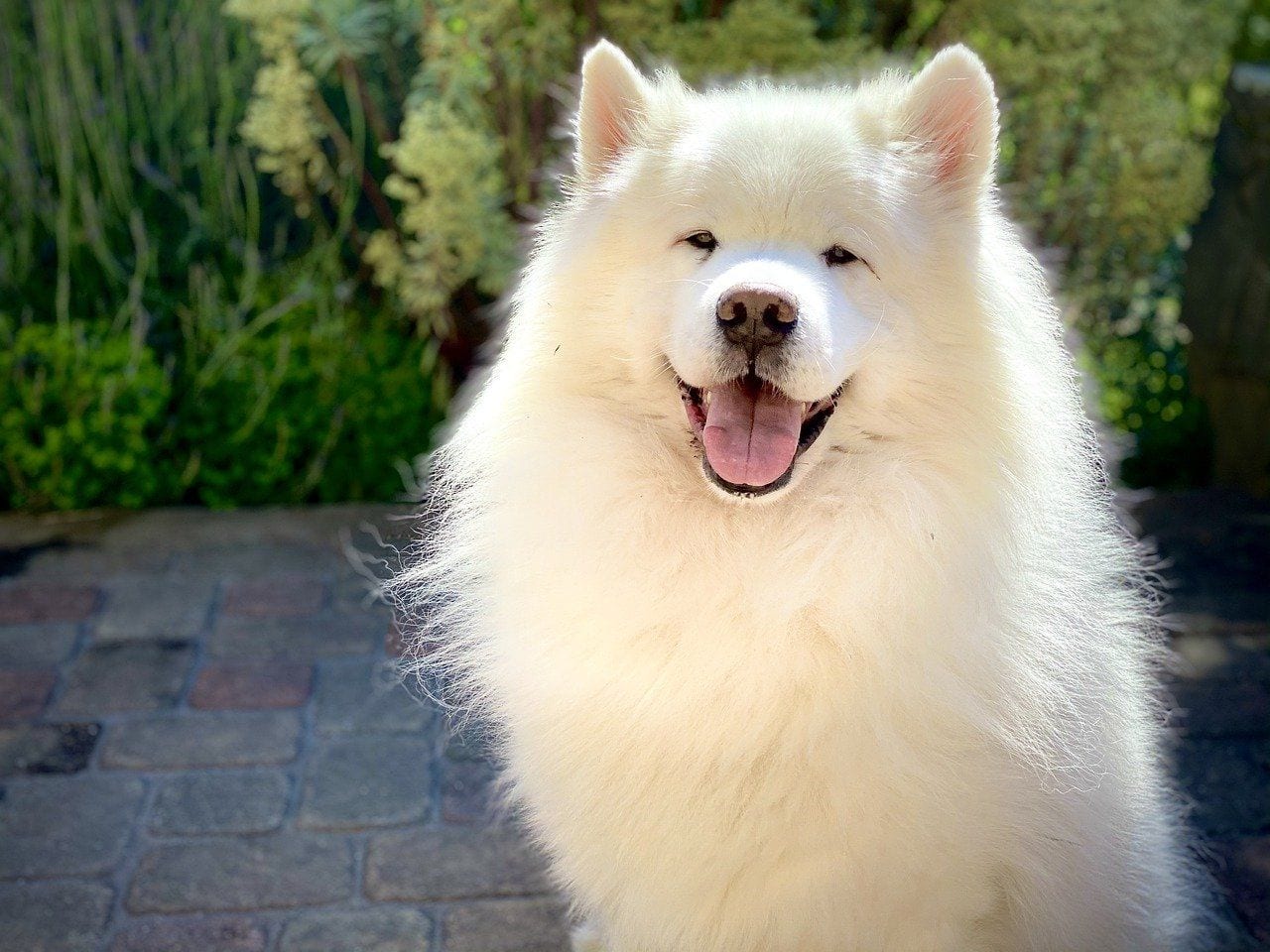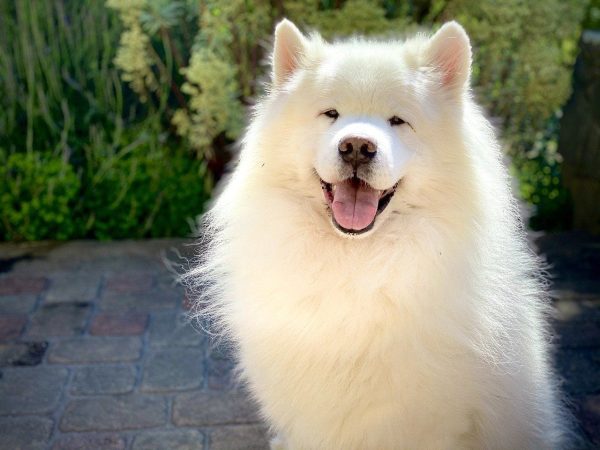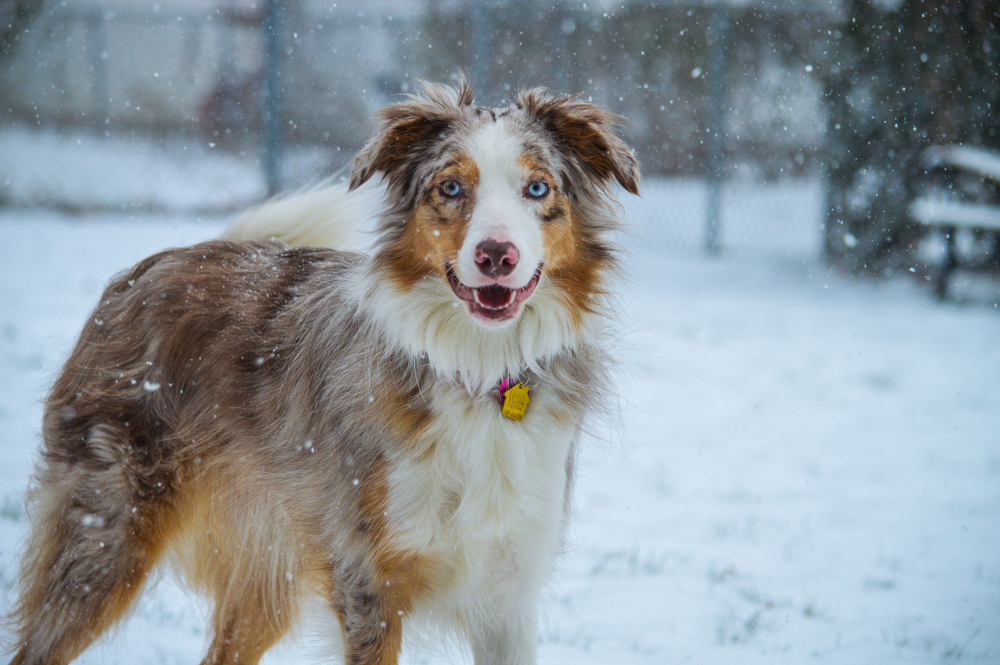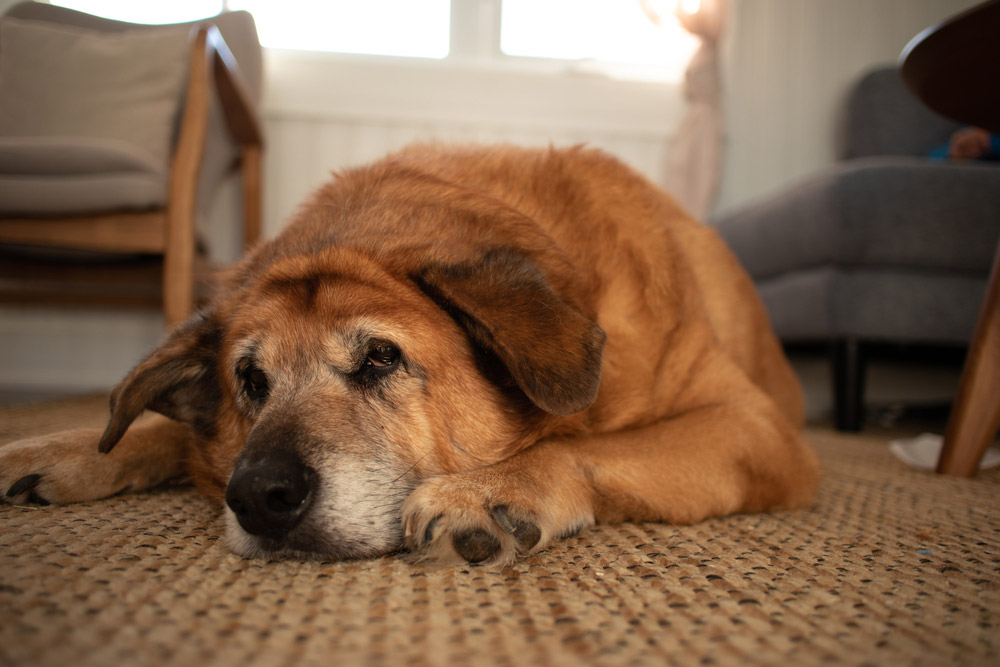Samoyeds have earned the nickname “the smiling sled dog.” These friendly, medium-sized pups are classified as working dogs. They get their name from the Samoyedic people in Siberia, who bred the fluffy white dogs to act as reindeer herders and pull their sleds.
Samoyeds have thick double-layer coats full of fluffy white fur. They are friendly, alert, playful, and sociable, but are they hypoallergenic? Although Samoyeds were once considered hypoallergenic, they don’t seem to be a breed of interest in more recent research on potentially hypoallergenic dog breeds. Nonetheless, their moderate rate of shedding may offer some people a certain degree of respite from minor allergies (as opposed to a high-shedding breed).
In this article, we’ll discuss what being “hypoallergenic” really means, what causes dog allergies in humans, and if Samoyed dogs are actually hypoallergenic.
What Does Hypoallergenic Mean?
The term hypoallergenic has only recently been associated with dogs. The word was initially developed as a descriptor for the textile and cosmetic industry. They used it to describe products that were not likely to bring on an allergic reaction. These products typically had fewer ingredients and were smoother on sensitive skin.
People can be allergic to almost anything, and there are also varying levels of allergies. Some people who are allergic to peanuts might only get itchy if they eat them. For others, it means going into anaphylactic shock and getting rushed to the emergency room.
The term “hypoallergenic” means that you are unlikely to have an allergic reaction, not that you are guaranteed total safety. That means any dog considered to be hypoallergenic could still trigger an allergic reaction in people with strong allergies to them. An allergic reaction is less likely to happen, but it still could. Therefore, no dog is considered truly hypoallergenic.
All of this is valuable to keep in mind because those with allergies to dogs might not be able to own a hypoallergenic dog either. Before adopting, you should be around them, pet them, and be close to them for a while before adopting them and taking them into your house. It will end up causing you less hassle and allergies and causing the dog less confusion by getting adopted and then being rehomed again.

Dog Allergy Causes
Many people believe that dog hair acts as an allergy trigger when it is shed around the home. However, that is not often the case, although it can be related. The typical trigger for a dog allergy is actually dander or flakes of dead skin.
The confusion is because dog hair usually acts as a carrier for dander. The more that a dog sheds, the more dander they spread around the home. The tiny pieces of dead skin attached to the hair float onto furniture, carpet, clothes, and corners when the old hair falls out.
Interestingly, the two aren’t always tied together. Typically, dogs that shed less are considered more hypoallergenic, but the inverse isn’t necessarily true in all cases. This is because the amount of allergens a dog may produce can vary from one dog to another, even within the same breed.
In addition, dogs can produce allergens that aren’t related to their dander in any way. For instance, certain people might be allergic to allergens found in dog urine. If you think you have an allergy, consult your healthcare provider. They can run tests to confirm your suspicion and may also help you identify which specific allergen triggers your allergies. This will help you when it comes to figuring out how to best manage your symptoms.
Are Samoyeds Hypoallergenic?
Samoyeds were cited in relatively old studies (2010) that attempted to identify hypoallergenic breeds. Unfortunately, the claims that they are hypoallergenic do not seem to meet cross-analyses verifications 1. In addition, the previous claims of the breed’s hypoallergenicity no longer exist on the 2010 source’s updated information 2.
Due to the lack of more recent information regarding Samoyeds, you should spend time around them before adopting one because the chances of an allergic reaction are still high.
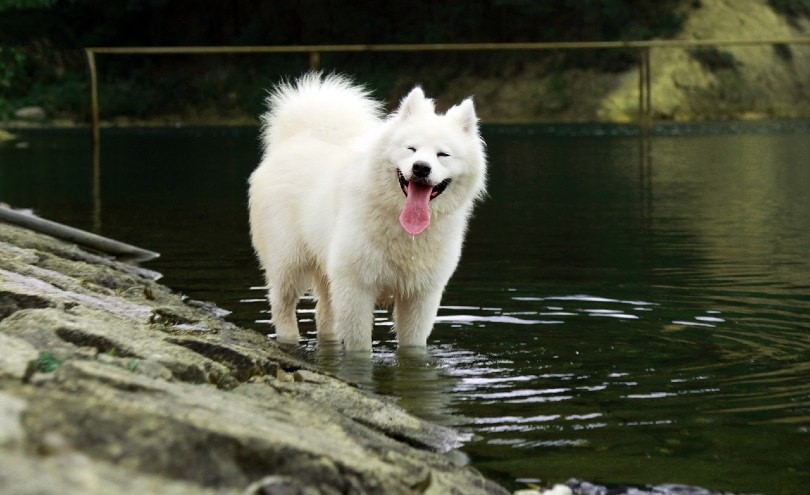
Do Samoyeds Shed a Lot?
Samoyeds do shed moderately. That is possibly part of the reason that people once heavily debated their classification as a hypoallergenic breed. They require more maintenance than most “hypoallergenic” dogs to trigger less of a reaction.
The other “problem” is that Samoyeds have double coats. Twice a year, they “blow” these coats, meaning they lose almost all of their underlayer at once, causing mounds of dog fur to come out of them in large chunks. These two seasons, usually spring and autumn, can be an especially trying time for dog owners with sensitivities.
Extra Precautions You Can Take
You can take precautions to mitigate the allergies and reactions you might get as the owner of a Samoyed pup. However, if you have a confirmed allergy, it’s best to follow the advice of your healthcare provider, as consistent exposure to allergens may worsen your quality of life.
Some hygiene measures can work wonders for those who wish to avoid issues or those with very mild allergies related to dog dander. Brushing your dog every day is one of the best ways to help yourself. It is even better if someone else in your household who doesn’t have allergies brushes them.
Beyond brushing them daily, consider bathing your dog more frequently, especially when your allergies are flaring up. Bathing a dog may reduce the amount of dander they produce and shed for a period of about 2 days; this might be beneficial in some cases, like a particularly stressful weekend.
Grooming and bathing them are particularly essential during those two times each year that they blow their coat. Take them to a groomer to get them “blown out.” This special grooming treatment effectively rids them of a vast majority of their shedding undercoat at one time, limiting the amount they shed around the house.
Other than keeping your Samoyed clean, try to persist in keeping your clothes and furniture free of their white fur. Use a pet roller to get as much of it off the couches and chairs as possible so that when you sit down, you don’t unwittingly send dander flying into the air around you.
Another good idea is to keep them out of your bedroom, especially off your bed. If you find that you still have problems breathing at night or perhaps your eyes and nose water more, get a HEPA (high-efficiency particulate air) filter to clean the air that you breathe all night long and keep you feeling healthier each morning.
Final Thoughts
Although Samoyeds are not usually the best breed for allergy sufferers, they were once classified by some as hypoallergenic dogs. However, they don’t seem to be the focus of such studies, indicating that initial claims of their hypoallergenicity might have been erroneous or exaggerated.
If owning one of these smiley characters has been your dream, acquaint yourself with them first before attempting ownership. Expect to put in plenty of work for mild cases of allergies, but remember to follow your healthcare provider’s advice. Allergies can also worsen over time; therefore, careful foresight is very important when adopting a pet when you know you’re allergic to them.
Ultimately, it’s best to be honest with yourself since you might not enjoy the benefits of pet companionship if your allergies are too severe.
Related Reads:
Featured Image Credit: DantasticImages, Pixabay

